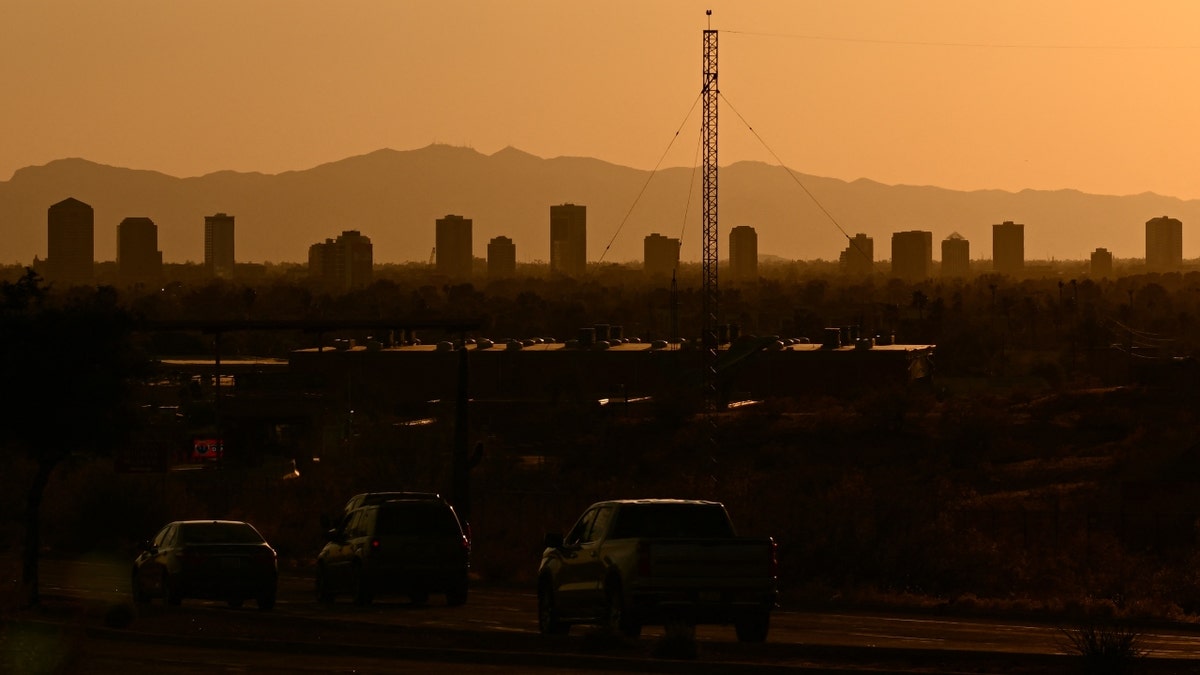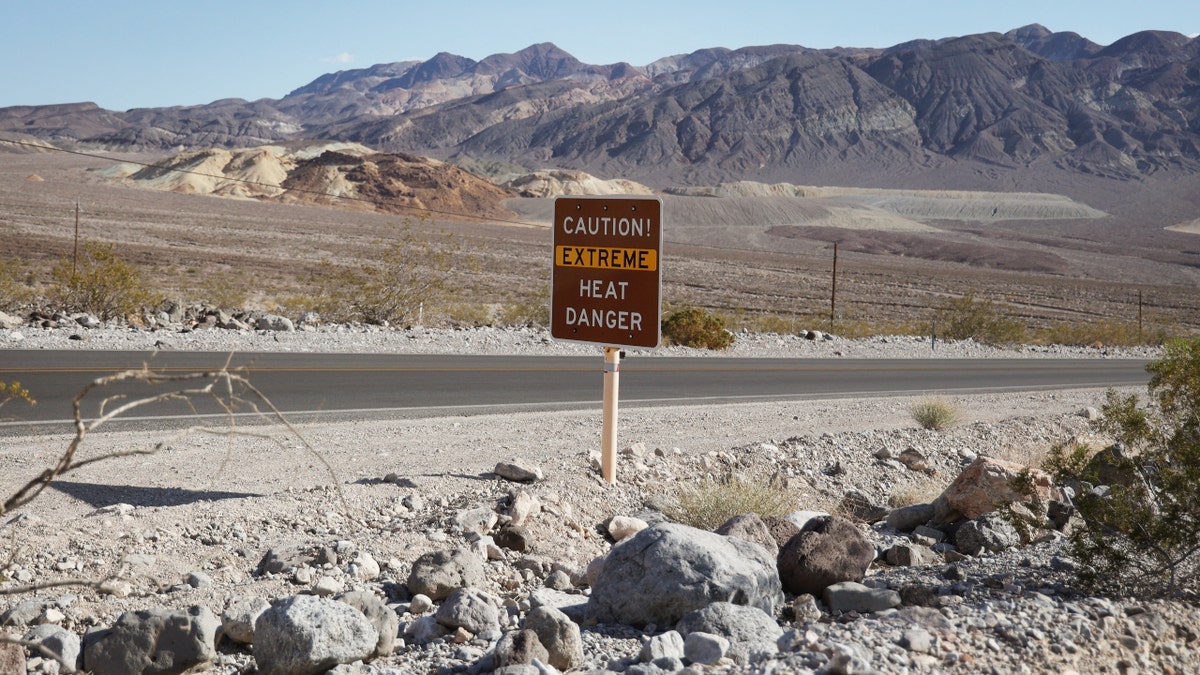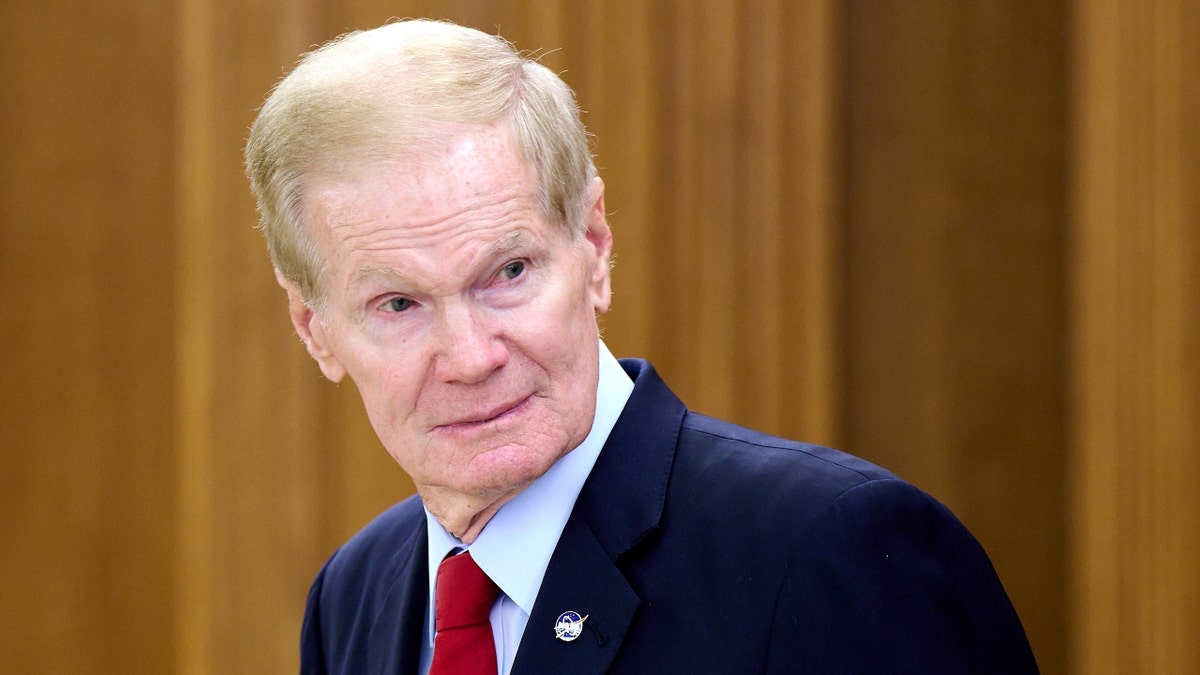Zoo animals cool off during the summer heat with frozen treats
Animals at the Zoo Aquarium Madrid were seen cooling off with some frozen treats. Temperatures recently peaked at 98 degrees, so aquarium staff brought the animals a refreshing snack.
NASA scientists say July was hotter than any other month in the global temperature record.
Last month was 0.43 degrees Fahrenheit warmer than any other July in the agency's record.
Additionally, an analysis from the Goddard Institute for Space Studies (GISS) in New York found it was 2.1 degrees warmer than the average July between 1951 and 1980.
Parts of South America, North Africa, North America and the Antarctic Peninsula were especially hot, and temperature increases there were around 7.2 degrees Fahrenheit above average.
NASA SPACECRAFT MAKES FIRST EARTH FLYBY AFTER 17-YEAR JOURNEY

Buildings stand on the horizon before sunset during a record heat wave as seen from Papago Park in Phoenix on July 18, 2023. (PATRICK T. FALLON/AFP via Getty Images)
NASA noted that extreme heat was linked to hundreds of heat-related illnesses and deaths with millions under heat warnings.
It said data showed the five hottest Julys since 1880 have all happened during the past five years.

"Elvis," a Galapagos Tortoise, is sprayed with water as staff at the Phoenix Zoo take extra measures to keep animals and guests cool during a record heat wave in Phoenix on July 19, 2023. (PATRICK T. FALLON/AFP via Getty Images)
"This July was not just warmer than any previous July – it was the warmest month in our record, which goes back to 1880," GISS Director Gavin Schmidt said. "The science is clear this isn’t normal. Alarming warming around the world is driven primarily by human-caused greenhouse gas emissions. And that rise in average temperatures is fueling dangerous extreme heat that people are experiencing here at home and worldwide."
The primary focus of the analysis was long-term temperature changes over decades and centuries.
The agency said a fixed base period yields anomalies consistent over time, with temperature "normals" defined by several decades.

Alonzo McAdams drinks a bottle of water given to him from a Salvation Army truck handing out water, and other supplies for the homeless in Tucson, Arizona, on July 26, 2023. (ANDREW CABALLERO-REYNOLDS/AFP via Getty Images)
SCIENTISTS PREDICT JULY WILL BE THE HOTTEST MONTH ON RECORD GLOBALLY
NASA assembles its temperature record from surface air temperature data from tens of thousands of metrological stations, as well as sea surface temperature data acquired by ship- and buoy-based instruments.

A heat advisory sign is shown along U.S. Highway 190 during a heat wave in Death Valley National Park in Death Valley, California, on July 16, 2023. (RONDA CHURCHILL/AFP via Getty Images)
The data is analyzed using methods that account for the varied spacing of temperature stations and for urban heating effects that could skew the calculations.
"The record-breaking July continues a long-term trend of human-driven warming driven primarily by greenhouse gas emissions that has become evident over the past four decades," it wrote.

A lone beachgoer finds shade under an umbrella at Rehoboth Beach, Delaware, on July 28, 2023, as the National Weather Service announced "oppressive heat" throughout the weekend. (JIM WATSON/AFP via Getty Images)
High sea surface temperatures contributed to the record, scientists said, with analysis showing especially warm ocean temperatures in the eastern tropical Pacific.
In an update on Monday morning, NASA Administrator Bill Nelson said it was "certainly is self-evident that the Earth is heating up" and stressed that NASA is just as much a climate agency as it is a space agency.

NASA administrator Bill Nelson waits for King Felipe VI of Spain at the Zarzuela Palace on May 31, 2023, in Madrid. (Carlos Alvarez/Getty Images)
CLICK HERE TO GET THE FOX NEWS APP
"Well, the bottom line of all this is, the last nine years are the warmest on record," he explained. "And, folks, Mother Nature is sending us a message and that message is we better act now before it's too late to save our climate. In other words, to save our planet."
Nelson stressed there were no political boundaries or geographical boundaries.
"We are all in this together," he concluded.










































